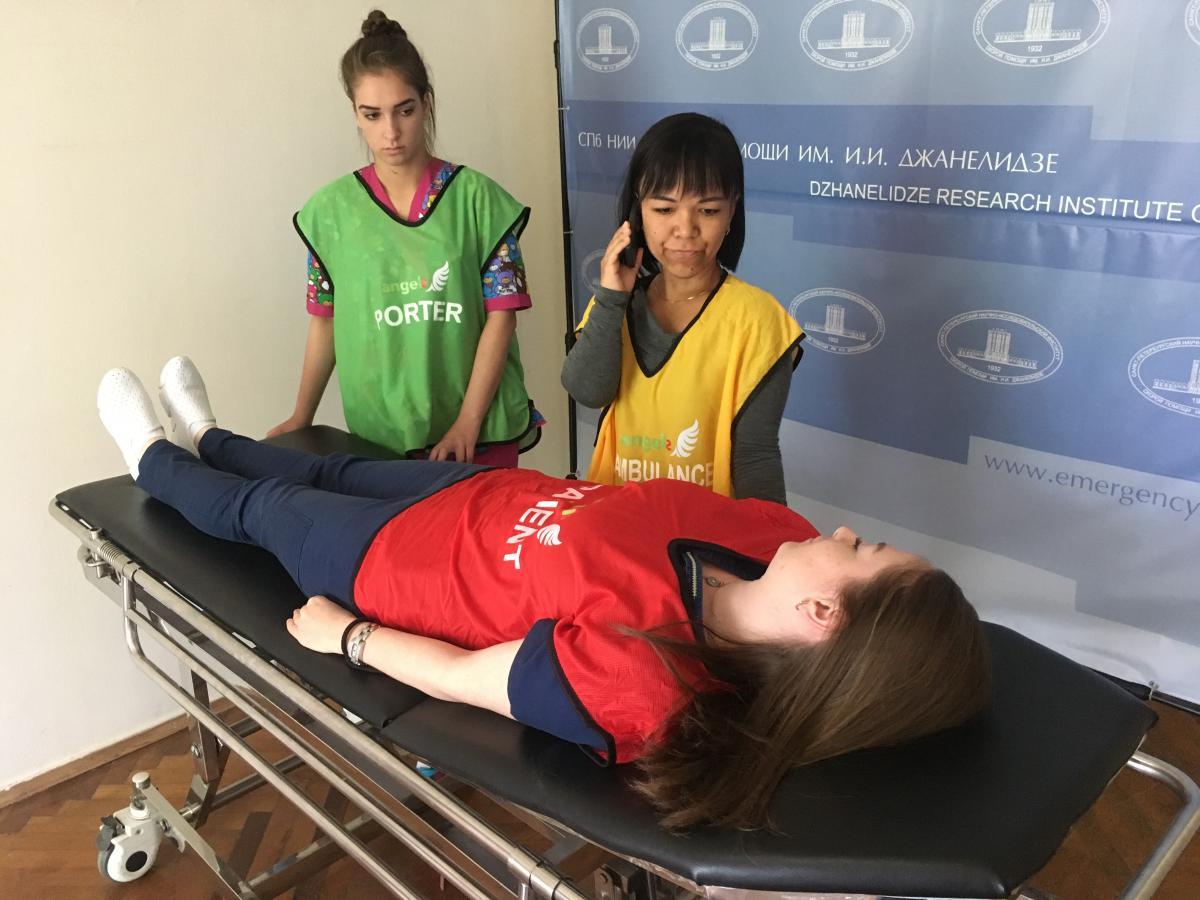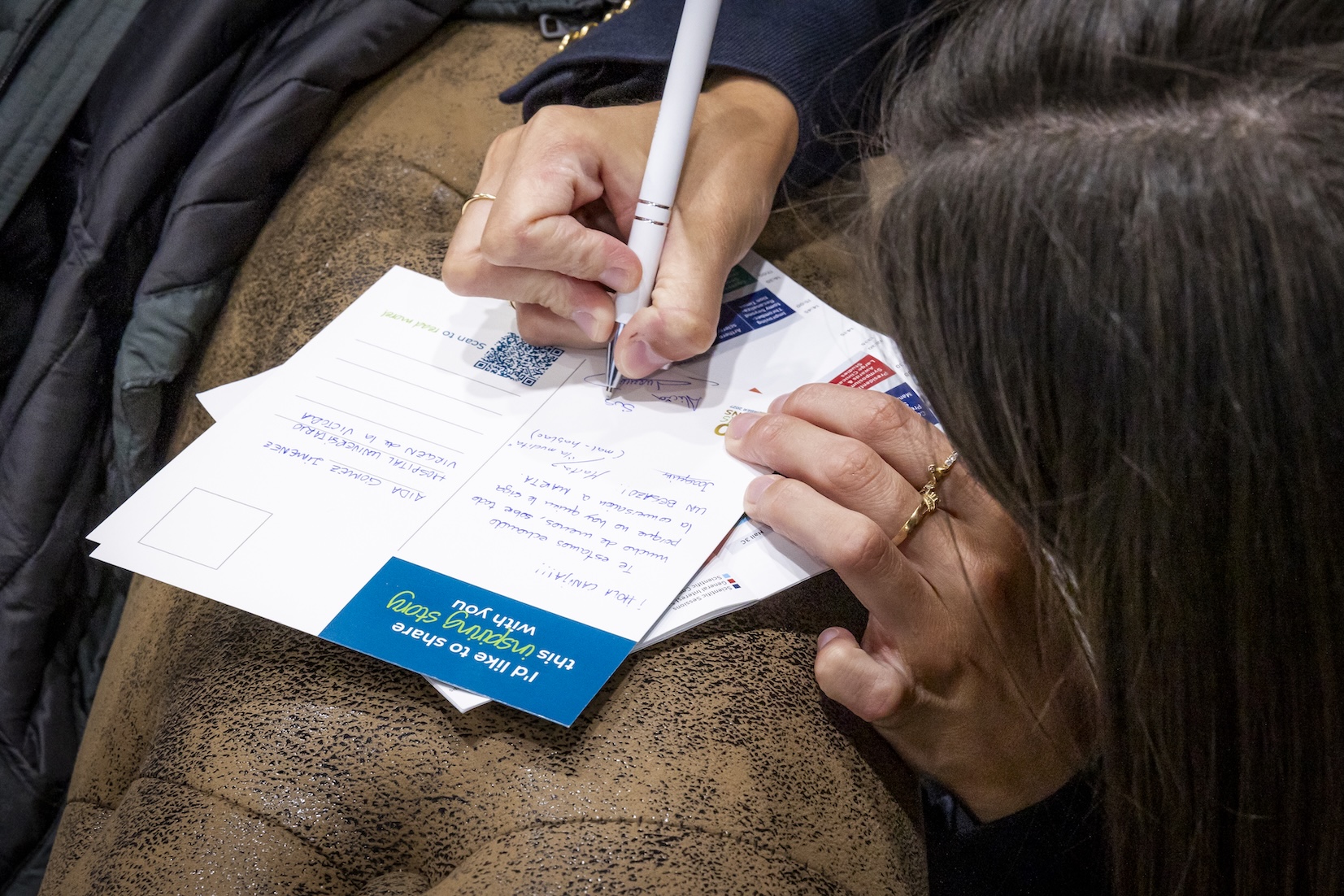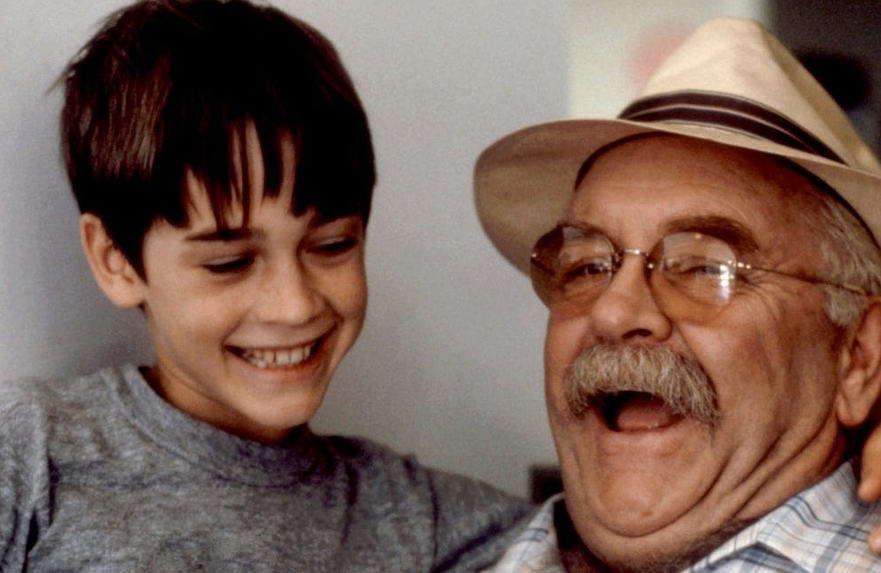Τον Ιούνιο του 2016, κατά τη διάρκεια μιας από τις αρχικές μας συναντήσεις στην Angels, ο καθηγητής Igor Voznyuk ενδιαφέρθηκε έντονα για τη χρήση του λογισμικού Body Interact για τη διεξαγωγή εκπαιδεύσεων στο Ερευνητικό Ινστιτούτο Επείγουσας Περίθαλψης της Αγίας Πετρούπολης - ένα μεγάλο, πολυλειτουργικό νοσοκομείο, καθώς και ένα ερευνητικό και εκπαιδευτικό ινστιτούτο για ιατρικά πανεπιστήμια. Μέσα σε μήνες, άρχισε να κάνει προσομοιώσεις χρησιμοποιώντας το Body Interact με την ομάδα του.
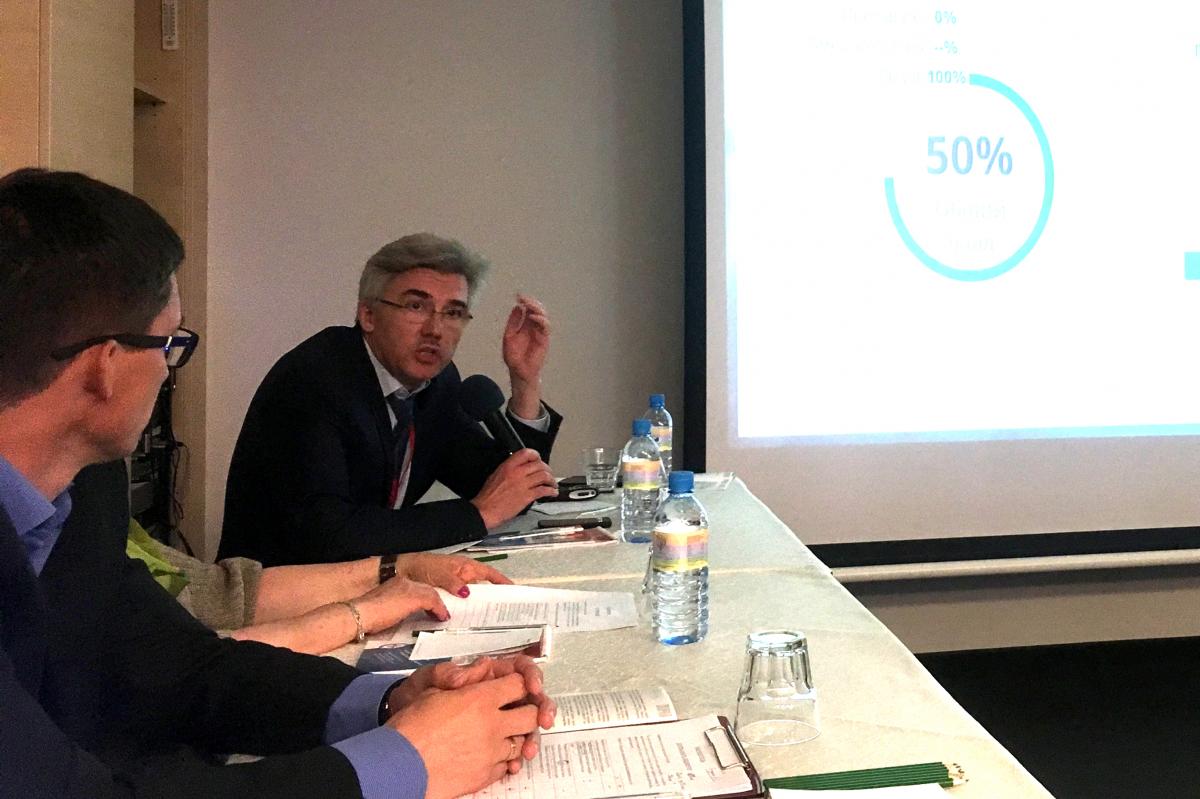
Ήταν φυσικό ότι, μόλις άκουσε γι' αυτό, ο καθηγητής Voznyuk ενδιαφερόταν για ένα Κέντρο Προσομοίωσης Εγκεφαλικού, το οποίο διαχειρίζεται ο Δρ. Robert Mikulik και η ομάδα του στο Brno, όπου εκπαιδεύονται χρησιμοποιώντας πραγματικές προσομοιώσεις. Επισκέφθηκε το Κέντρο Προσομοίωσης τον Νοέμβριο του 2017 και απέκτησε περαιτέρω έμπνευση για τον τρόπο καλύτερης φροντίδα αγγειακού εγκεφαλικού επεισοδίου στο δίκτυό του.
Δεν θα ήταν ποτέ εύκολο, αλλά ο καθηγητής Voznyuk γνώριζε ότι η δημιουργία ενός εκπαιδευτικού κέντρου προσομοίωσης θα βελτίωνε δραματικά την εκπαίδευση των ομάδων για το αγγειακό εγκεφαλικό επεισόδιο στην περιοχή του.
Η πρόκληση ήταν τότε να πειστούν οι σωστοί άνθρωποι ότι αυτή η ιδέα του κέντρου προσομοίωσης είναι μια αξιόλογη επένδυση για τη βελτίωση της φροντίδα αγγειακού εγκεφαλικού επεισοδίου επεισοδίου σε περιφερειακό και, τελικά, εθνικό επίπεδο.
Η ίδια η ιδέα προσαρμόστηκε περαιτέρω από το μπλε τύπωμα του Brno στην τοπική πραγματικότητα και τις ανάγκες.
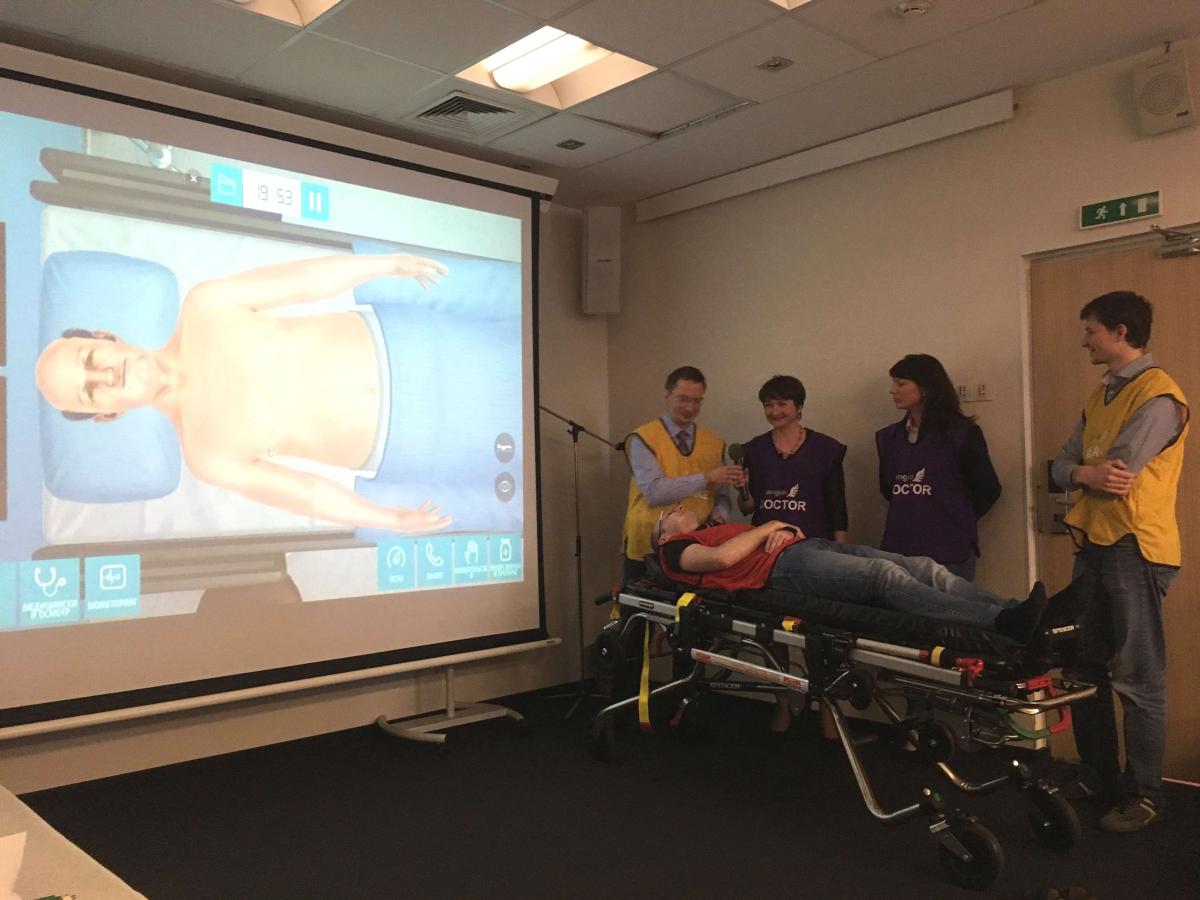
Τελικά, την πρώτη Ιουνίου 2018, το μάθημα ξεκίνησε κατά τη διάρκεια ενός συνεδρίου αφιερωμένου στην επείγουσα περίθαλψη στην Αγία Πετρούπολη, όπου φιλοξένησε ένα συμπόσιο με θέμα την προσομοίωση.
Το σχέδιο είναι να προσφέρει ένα εκπαιδευτικό μάθημα με προσομοιώσεις στο Ερευνητικό Ινστιτούτο Επείγουσας Περίθαλψης της Αγίας Πετρούπολης, όπου θα μπορούσε να μιμηθεί καλύτερα ένα νοσοκομειακό περιβάλλον και να διεξάγει εκπαιδεύσεις σε τακτική βάση.
Το μάθημα προσομοίωσης χωρίζεται σε πέντε φάσεις:
- Προνοσοκομειακή φάση με πλήρη συνέντευξη και αξιολόγηση του εικονικού ασθενής με ασθενοφόρο, χρησιμοποιώντας το πρωτόκολλο ΧΟΠΑ,
- Μεταφορά δεδομένων από το ασθενοφόρο στο νοσοκομείο: τηλεφωνική κλήση και κατόπιν δια ζώσης μεταφορά του ασθενής στην Ομάδα Εγκεφαλικού στο νοσοκομείο,
- Ενδονοσοκομειακή φάση από την πόρτα έως τη θεραπευτική αντιμετώπιση,
- Σχόλια από το συμβούλιο παρατηρητών και εμπειρογνωμόνων
- Συνεδρία Ε&Α
Εκείνοι που έλαβαν την εκπαίδευση αποτελούνταν από μέλη του προσωπικού της μονάδα αγγειακού εγκεφαλικού επεισοδίου επεισοδίων από διαφορετικά νοσοκομεία και προσωπικό ασθενοφόρο από διαφορετικές υπηρεσίες ασθενοφόρο, οι οποίοι χωρίστηκαν σε 4 ομάδες εκπαίδευσης που περιλάμβαναν έναν εικονικό ασθενής (και έναν συγγενή, εάν το σενάριο το απαιτούσε), ένα πλήρωμα ασθενοφόρο, έναν αχθοφόρο, έναν νευρολόγος, έναν νοσηλευτικό προσωπικό, καθώς και παρατηρητές και ενόρκους οπλισμένους με μια λίστα ελέγχου που αναπτύχθηκε από τον καθηγητή Βόζνυκου για ανατροφοδότηση.
Στην αρχή, μόνο ο εικονικός ασθενής και ο συγγενής του γνωρίζουν το ακριβές σενάριο, με βάση μια περίπτωση από την Αλληλεπίδραση Σώματος. Η εργασία του πληρώματος ασθενοφόρο είναι η συλλογή όλων των σχετικών πληροφοριών, η διάγνωση του ασθενής και η προ-ειδοποίηση της ομάδας αγγειακό εγκεφαλικό επεισόδιο χρησιμοποιώντας ένα τηλέφωνο για αγγειακό εγκεφαλικό επεισόδιο.
Στη συνέχεια, ο ασθενής μεταφέρεται σε ένα πραγματικό καροτσάκι στο «νοσοκομείο» όπου περιμένουν ο νευρολόγος και ο νοσηλευτικό προσωπικό. Η μεταφορά του ασθενούς από ασθενοφόρο σε νευρολόγος και η αρχική συνέντευξη και αξιολόγηση ακολουθείται από την έναρξη της περίπτωσης αλληλεπίδρασης με το σώμα, η οποία εμφανίζεται σε μεγάλη οθόνη και εκτελείται από σύμβουλο της Angels. Η εργασία της ομάδας αγγειακό εγκεφαλικό επεισόδιο είναι απλή – για τη διάγνωση και τη θεραπεία του ασθενής.
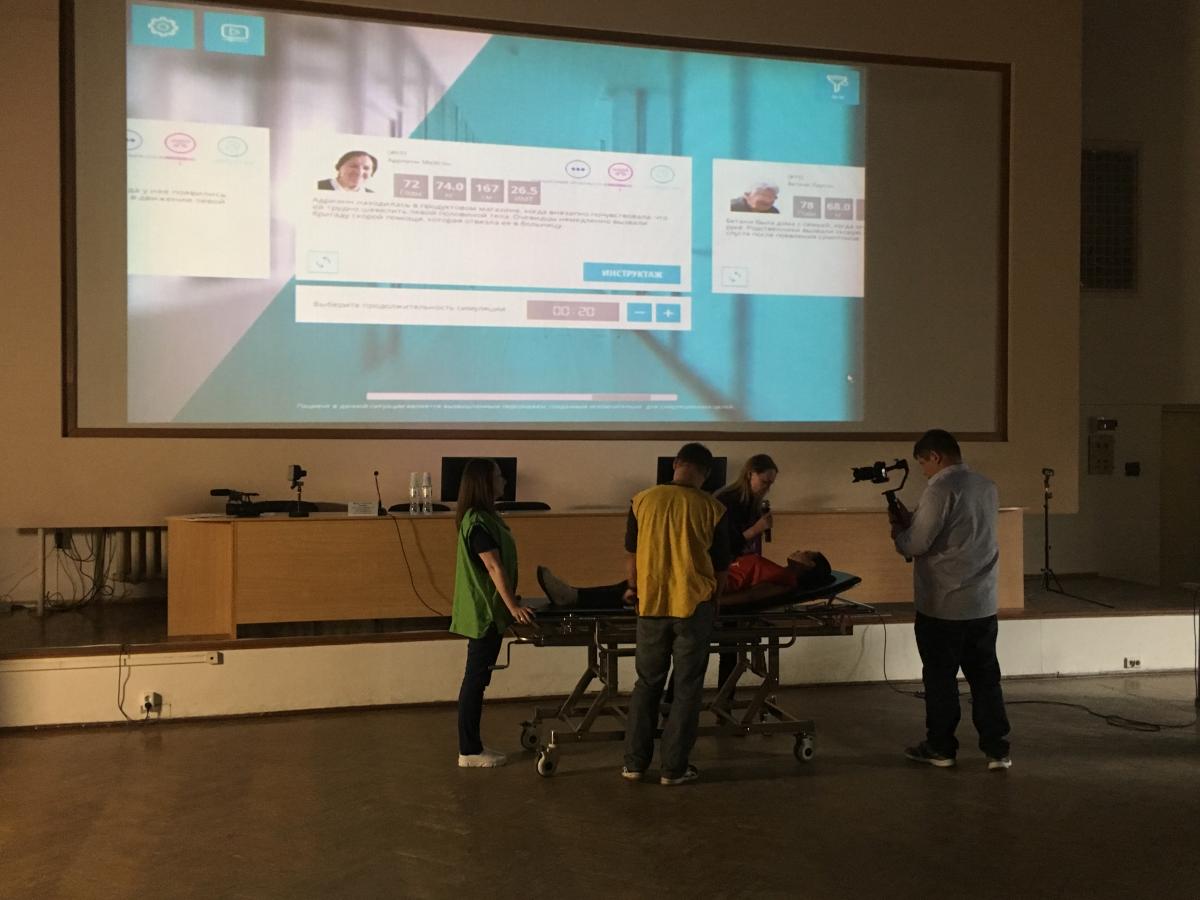
Μόλις ολοκληρωθεί η προσομοίωση, μια επιτροπή τεσσάρων επικεφαλής από διαφορετικές μονάδες αγγειακό εγκεφαλικό επεισόδιο επεισοδίων που παρακολουθούν τη διαδικασία θα κοινοποιήσει τα σχόλιά τους με βάση τις σημειώσεις και το σύστημα βαθμολόγησης που αποτελεί μέρος της λίστας ελέγχου του παρατηρητή, αγγίζοντας πτυχές όπως η συνεργασία και η επικοινωνία μεταξύ των μελών της ομάδας και με τον ασθενής, ζητήματα απώλειας χρόνου και συμμόρφωση με το πρωτόκολλο. Στη συνέχεια, θα ακολουθήσει μια συνεδρία Ε&Α για να διασφαλιστεί η πλήρης κατανόηση μεταξύ όλων των εμπλεκόμενων μερών.
Τα μαθήματα προσομοίωσης πρόκειται να πραγματοποιούνται μία φορά κάθε τρεις μήνες, προσκαλώντας κάθε προχωρημένο νευρολόγος από τις μονάδες αγγειακό εγκεφαλικό επεισόδιο επεισοδίων της περιοχής. Ωστόσο, όπως και με όλους τους μεγάλους οραματιστές, ο καθηγητής Voznyuk και η ομάδα του έχουν θέσει τα μάτια τους σε μεγαλύτερα πράγματα, στοχεύοντας στην αύξηση της συχνότητας της εκπαίδευσης σε μηνιαία βάση και εμπλέκοντας περιοχές διαφορετικές από τις δικές τους. Εξετάζουν επίσης την επισημοποίηση αυτού του μαθήματος ως προαιρετική ενότητα για την εθνική πιστοποίηση των νευρολόγου, έτσι ώστε οι συμμετέχοντες να μπορούν να διεκδικήσουν πόντους που να μπορούν να πιστωθούν στην πιστοποίηση νευρολόγος τους (η οποία σύμφωνα με τους τοπικούς κανονισμούς πρέπει να ανανεώνεται κάθε πέντε χρόνια).
Σκεπτόμενος να δημιουργήσει ένα κέντρο προσομοίωσης, μπορεί κάποιος να σκεφτεί ότι θα χρειαζόταν τεράστιος αριθμός πόρων. Η γνώση από το Ερευνητικό Ινστιτούτο Επείγουσας Περίθαλψης της Αγίας Πετρούπολης είναι ότι αυτό μπορεί να γίνει με ελάχιστους πόρους και ορισμένα εργαλεία που παρέχονται από την Πρωτοβουλία Angels.
Περιττό να πούμε ότι είμαστε εξαιρετικά υπερήφανοι που είμαστε ένα μικρό μέρος αυτού του κινήματος, το οποίο είμαστε σίγουροι ότι θα αλλάξει το τοπίο της φροντίδα αγγειακού εγκεφαλικού επεισοδίου στη Ρωσία και θα κάνουμε ό,τι μπορούμε για να συνεχίσουμε να το υποστηρίζουμε!
Παρακολουθήστε ένα βίντεο σχετικά με αυτό το κέντρο προσομοίωσης εδώ:https://youtu.be/b4VNwWlRhLk (διαθέσιμο μόνο στα ρωσικά)
